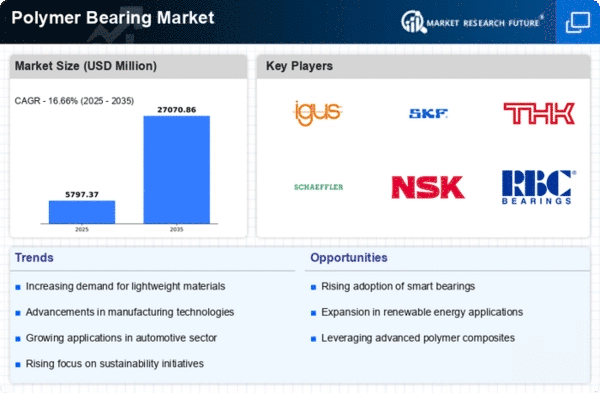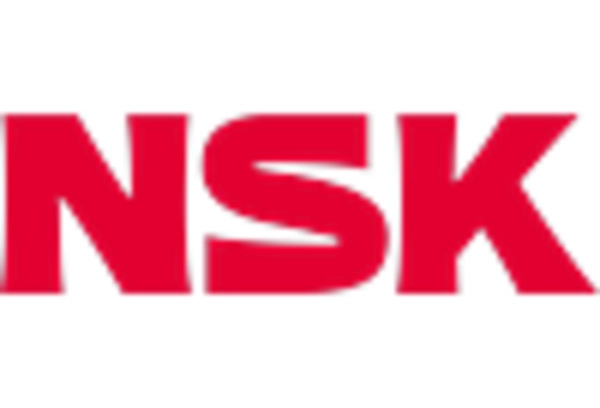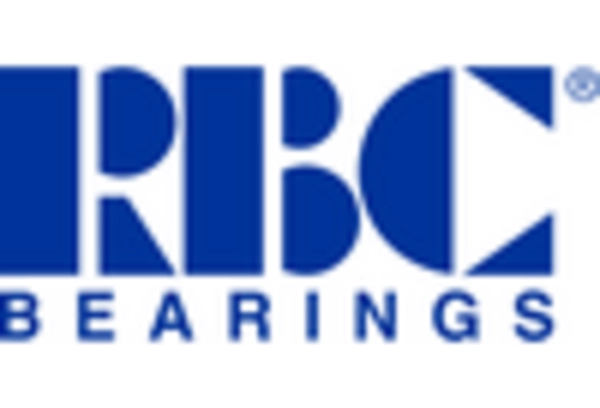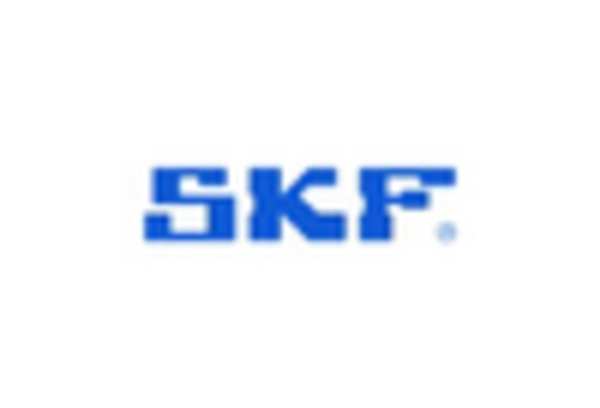Market Share
Polymer Bearing Market Share Analysis
The polymer-bearing market is a crucial segment within the industrial and automotive sectors that employs various ways of positioning itself in relation to the competition. Fundamentally, one key approach involves differentiation through material innovation and performance. Polymer-bearing industry players spend huge amounts on R&D to come up with new formulations, such as self-lubricating materials, hard-wearing substances, and materials capable of operating under different conditions so as to offer their customers cutting-edge solutions. Cost leadership is also pivotal within the Polymer bearing market. Consequently, some companies are focused on optimizing manufacturing operations, sourcing low-cost raw material inputs, or gaining economies of scale so that they may be able to provide cheap polymer bearings. It is the most effective strategy in industries with a highly variable cost of production, like manufacturing and automotive production, because it allows them to gain a competitive advantage by being able to produce at a lower cost than competitors. Collaborations and strategic alliances have played an integral role in shaping market shares amongst players in the Polymer Bearing Market. This usually involves entering into partnerships with key stakeholders, including original equipment manufacturers (OEMs), companies that make industrial machinery, and those involved in vehicle assembly. Such efforts help create efficient distribution channels for products along the supply chain. In addition, companies through these associations get opportunities to access new areas where they sell their merchandise, obtain the latest innovations relating to polymers for bearings, and even establish links with possible consumers, which leads to increased market shares and brand awareness. Similarly, manufacturers need more customer-friendly approaches to maintain their position in this sector, so understanding what customers want, such as tiny details about given polymers, the compatibility of different solutions in diverse application situations, and professional backup are important determinants of future market shares. This has led to many companies positioning themselves as eco-friendly to get a larger share of the environmentally-conscious customer segment. Customers have become more aware of the impact their purchases have on nature, thus demanding environmentally friendly bearings from their suppliers. Some players within the polymer-bearing industry have come up with materials based on recycled constituents; less energy is used when producing them, while hazardous substances are minimized during the processing stages.



















Leave a Comment